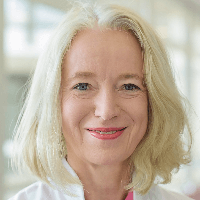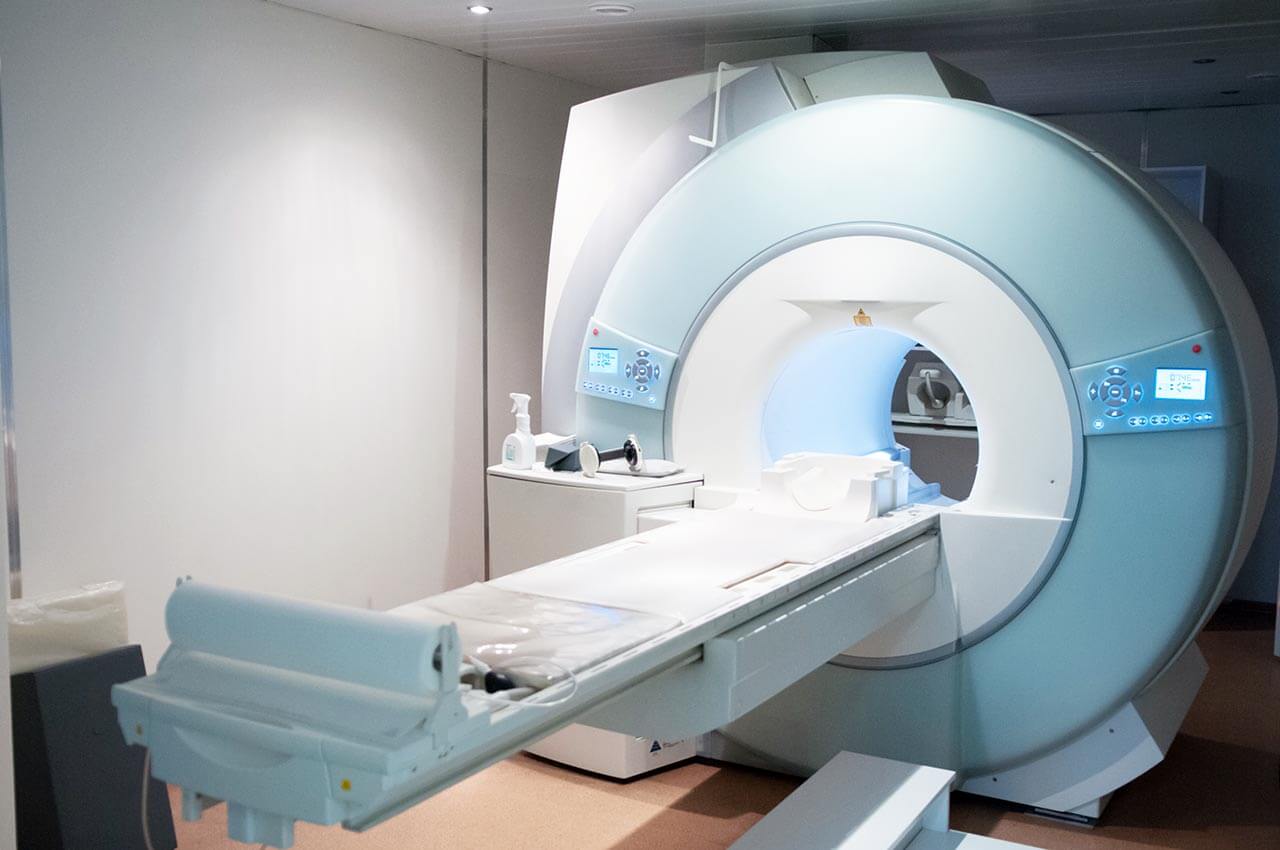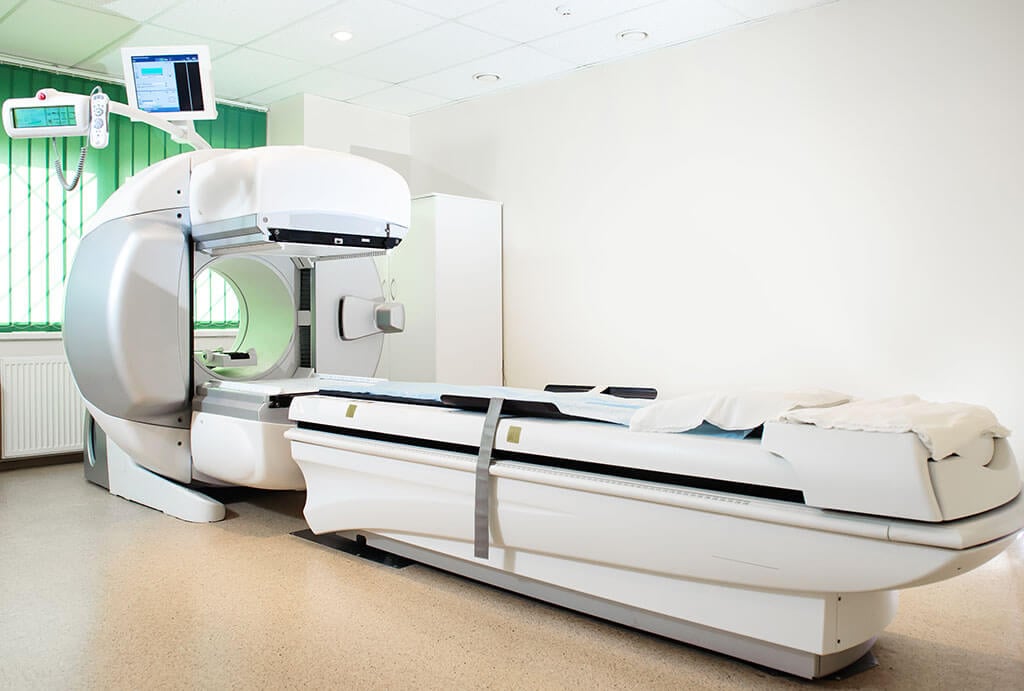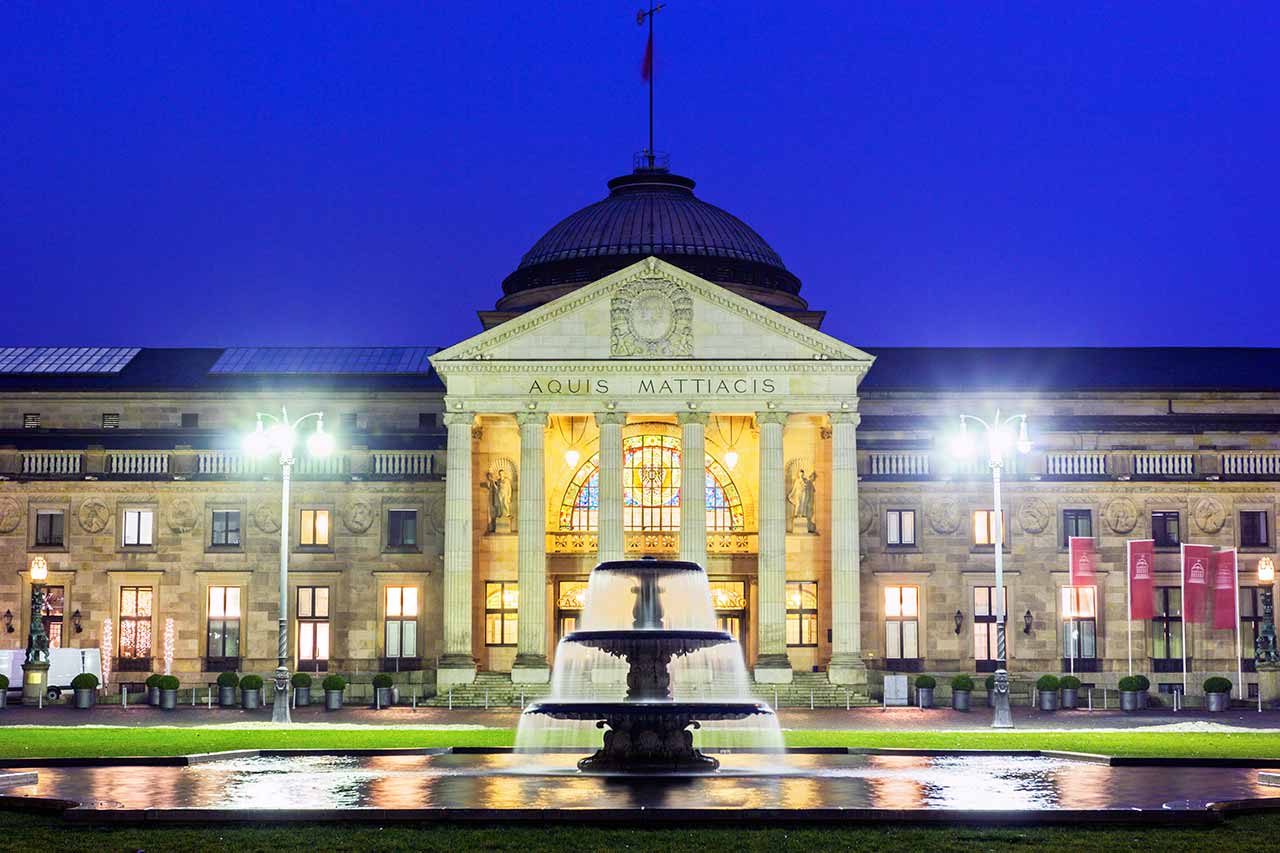
The program includes:
- Initial presentation in the clinic
- clinical history taking
- review of medical records
- physical examination
- dermatological examination
- anesthesia
- treatment with cryotherapy
- nursing services
- services of all leading experts
- explanation of individual treatment plan
Required documents
- Medical records
Service
You may also book:
 BookingHealth Price from:
BookingHealth Price from:
About the department
The Department of Adult and Pediatric Dermatology, Allergology at the DKD HELIOS Clinic Wiesbaden offers the full range of diagnostic and therapeutic services in the areas of its specialization. The doctors of the medical facility focus on the patients with skin diseases, including skin manifestations of allergic reactions. The department also successfully carries out aesthetic dermatological procedures to improve the condition of the skin and rejuvenate it. The department's specialists are especially interested in the treatment of benign and malignant skin tumors. The doctors working in the department admit both adults and children. The department offers all advanced therapeutic methods, running from drug treatment with tablets, creams and ointments to surgical interventions, including flap plastic surgery, laser therapy, photodynamic therapy and phototherapy. The department also provides emergency medical care. The doctors working in the medical facility strictly observe modern clinical protocols, and also take into account the recommendations of the German Society for Dermatology. The department is headed by Prof. Dr. med. Christiane Bayerl.
The dermatologists of the department are especially interested in the treatment of malignant skin tumors. The most common cancers in dermatology are melanoma and basalioma. The choice of tactics for treating skin cancer depends on the type of tumor, its size, location, as well as on the patient's age and his general health condition. In most cases, the first-line treatment is the surgical resection of the tumor. The department's specialists successfully perform Mohs micrographic surgery, which is the gold standard of surgical treatment of skin cancer. Mohs surgery is usually performed on an outpatient basis, under local anesthesia. The main difference between the Mohs surgery and the classical surgical resection is that the tumor is removed in stages, with histological control of the edges of the surgical wound after each stage and determination of the spread of the tumor into the adjacent tissues. Mohs micrographic surgery provides total tumor removal with minimal damage to the surrounding healthy tissue, which is its main benefit over other surgical techniques. In addition, this technique allows achieving a good aesthetic result, which is especially important when removing tumors in the face and neck. When fighting skin cancer, the specialists actively use laser surgery, cryotherapy, photodynamic therapy, chemotherapy, radiation therapy and other types of treatment. The therapeutic process involves oncologists, chemotherapists and radiation therapists who together with dermatologists develop a comprehensive treatment regimen for each patient. It is the individual approach to each clinical case, the professionalism and experience of doctors, as well as their well-coordinated work that allows them to work wonders curing the most complex forms of skin cancer.
The department effectively treats such chronic and inflammatory skin diseases as eczema, psoriasis, lichen planus, prurigo, vitiligo and many others. As of today, the most effective treatment for the above diseases is phototherapy. This technique is widely used in the department, and therefore doctors successfully select the optimal course of therapy for each patient and competently combine phototherapy with other medical procedures to ensure a high-quality result. Phototherapy involves the use of ultraviolet light, which is also present in sunlight. The equipment for phototherapy uses special lamps that provide the application of several types of radiation at once – ultraviolet, infrared and visible. Prior to phototherapy, the attending physician always determines whether this procedure is safe for a particular patient. The treatment can be provided both in the hospital and at home using special equipment.
The department also provides services in the field of aesthetic dermatology. It offers CO2 laser resurfacing, Nd:YAG laser therapy (for example, to remove spider veins, hemangiomas), epilation, chemical peels (superficial, medium and deep), facial cleansing for acne, treatments for hair loss, hyaluronic acid and botulinum toxin injections for the treatment of wrinkles.
An integral part of the department's clinical practice is the treatment of skin manifestations of allergic pathologies. The department is mostly visited by the patients with allergies to drugs, food, photodermatoses, urticaria, angioedema and occupational skin diseases. The first step is the diagnostics to identify a specific type of allergy and its causes. To do this, the specialists carry out skin prick tests, skin scratch tests, epicutaneous and intracutaneous skin tests, nasal, oral and subcutaneous provocation tests. The purpose of all tests is to identify hypersensitivity to any substance (allergen) for subsequent specific therapy. The main treatment methods in the arsenal of the department's medical team are allergen-specific immunotherapy and desensitization.
The department provides both diagnostics and treatment of the following diseases:
- Allergic diseases
- Drug allergy
- Food allergy
- Insect allergy
- Photodermatoses
- Urticaria and angioedema
- Occupational skin allergies
- Skin diseases
- Benign skin tumors (for example, lipomas)
- Malignant skin tumors (for example, melanomas, basal cell carcinomas, sarcomas, lymphomas)
- Inflammatory dermatoses (psoriasis, neurodermatitis)
- Autoimmune skin diseases (pemphigus, bullous pemphigoid, collagenosis, vasculitis)
- Proctological diseases with skin lesions (anal eczema, anal fissures, hemorrhoids, hemorrhoidal anal skin tags)
- Skin diseases in children
- Other diseases
The department's range of medical services includes:
- Allergology
- Diagnostics
- Skin prick tests, skin scratch tests, epicutaneous and intracutaneous skin tests, nasal, oral and subcutaneous provocation tests
- Rhinomanometry, clinical examination for urticaria diagnostics, UV testing
- Total IgE testing
- Treatment
- Allergen-specific immunotherapy
- Desensitization
- Diagnostics
- Diagnostics
- Dermatohistological testing
- Mycological tests
- Trichogram for the diagnostics of hair diseases
- Treatment
- Conservative treatment methods
- Drug treatment
- Laser therapy
- Photodynamic therapy
- Cryotherapy
- Peeling and cleansing for acne
- Hair loss treatment with diphenylcyclopropenone
- Botulinum toxin injections, iontophoresis, suction curettage of sweat ducts in case of hyperhidrosis
- Sclerotherapy for spider veins
- Treatment of wrinkles with botulinum toxin injections and fillers
- Surgical treatment methods
- Laser surgery
- Flap plastic surgery
- Electrosurgery
- Dermabrasion
- Nail surgery
- Circumcision
- Vacuum therapy for the treatment of chronic non-healing wounds
- Conservative treatment methods
- Other medical services
Curriculum vitae
Higher Education
- 1982 - 1989 Study of Human Medicine at the University of Heidelberg and the University of Mannheim.
Professional Career
- 1989 - 2006 Physician at the Department of Dermatology, Hospital in Mannheim.
- 1994 Board Certification in Dermatology and Allergology.
- 1995 Senior Physician in the Department of Dermatology, Hospital in Mannheim.
- 1997 Habilitation.
- 1999 Healthcare quality management.
- 2004 Professorship in Dermatology.
- Since 2006 Head Physician of the Department of Adult and Pediatric Dermatology, Allergology at the DKD HELIOS Clinic Wiesbaden.
Other Activities
- Editor of "Aktuelle Dermatologie".
- Organization of symposia on pediatric dermatology.
- Initiator of the "Allergo" program of the German Society of Dermatology (DDG) in the Working Group of Scientific Medical Societies (AWMF).
- Consultant for the Federal Office for Risk Management and Contact Person for the German Society for Dermatology (DDG).
- Research projects on the effects of UV radiation and the environment on the skin, allergology and professional dermatology, local and systemic pharmacotherapy.
- Head of the Skin Cancer Center Wiesbaden.
- Teaching activities at the University of Heidelberg and the University of Mannheim (since 2006).
Photo of the doctor: (c) DKD Helios Klinik Wiesbaden
About hospital
The DKD HELIOS Clinic Wiesbaden has long made a name for itself in the international medical arena by introducing an optimal model of medical care, combining the use of the most advanced medical technologies, the experience of highly qualified doctors and impeccable quality of patient care. The medical facility first opened its doors to patients in 1970. The world famous Mayo Clinic Rochester in America served as a model for the design of the medical complex. Since the foundation of the clinic, the main direction of its activities has been comprehensive diagnostics of complex diseases integrated into an interdisciplinary treatment concept. Today, an integral part of clinical practice is also preventive diagnostics aimed at the early detection of pathological changes in the human body. In recent years, the clinic has been actively developing the direction of surgery, in which it has significantly succeeded. The clinic enjoys a reputation as one of the best medical facilities in Europe in the field of endocrine and colorectal surgery, as well as in hernia repair surgery.
The clinic has 24 specialized departments. Each of them offers a team of experienced doctors, whose main value is the patient's health. The work of all doctors of the medical facility is based on a single credo – "Treat not a disease, but a patient". According to this belief, the course of treatment should be as individual as possible, taking into account the patient's physical characteristics, lifestyle, diet, emotional state, etc.
The clinic's bed capacity consists of 138 inpatient beds and 60 beds in a day hospital. Many diagnostic and therapeutic procedures are performed on an outpatient basis. The diagnostic and treatment rooms, like the operating rooms of the clinic, are equipped with state-of-the-art technology to ensure the observance of strict hygiene and safety standards. The advanced medical equipment allows detecting the slightest changes in the functioning of organs and their structure with impeccable accuracy, thanks to which doctors can diagnose complex pathologies at the very early stages. This greatly increases the chances of a successful cure.
The location of the clinic in Wiesbaden, known as one of the oldest thermal spas in Europe, is another pleasant advantage for the patients. Arriving at the clinic for a preventive diagnostic examination, one can improve his health in the healing thermal springs, as well as enjoy the sightseeing of historical monuments. The medical center is located in the immediate vicinity of the English style Spa Park founded in the distant 1852, so in the free time from medical procedures one can take a pleasant walk in the beautiful park.
Photo: (с) depositphotos
Accommodation in hospital
Patients rooms
The patients of the DKD HELIOS Clinic Wiesbaden live in comfortable single and double rooms. Each patient room has an ensuite bathroom with shower and toilet. The standard patient room furnishings include an automatically adjustable bed, a bedside table, a table and chairs, a TV and a telephone.
The clinic also offers enhanced comfort rooms with spacious bathrooms, which additionally include a large mirror, hairdryer, changeable towels and toiletries. These patient rooms also have a safe for storing valuables, a free minibar with soft drinks, a flat-screen TV with satellite channels and free Wi-Fi.
Meals and Menus
The patients of the clinic are offered tasty and balanced three meals a day: breakfast, lunch and dinner. If for some reason you do not eat all the foods, you will be offered an individual menu. Please inform the medical staff about your dietary preferences prior to treatment.
The clinic also has a cozy cafe where one can taste delicious snacks, salads, main courses and desserts. One can also enjoy aromatic coffee, delicious tea and soft drinks in the cafe.
Further details
Standard rooms include:
Religion
The religious services are available upon request.
Accompanying person
During the inpatient program, the accompanying person can live with the patient in a patient room or a hotel of his choice. Our managers will help you choose the most suitable option.
Hotel
During the outpatient program, the patient can stay at the hotel of his choice. Our managers will help you choose the most suitable option.





